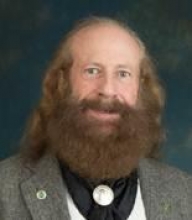EECS Seminar: Resource Management for Energy-Constrained Computing Systems

Department of Electrical and Computer Engineering and
Department of Computer Science
Colorado State University
Abstract: Scientists and engineers always want faster and faster computing systems, and in general, faster computers require more energy. With rising energy costs, there is an urgent need for energy-efficient computing at many different levels. This presentation focuses on resource management in an oversubscribed energy-constrained heterogeneous distributed computing system. We address the problem of assigning dynamically-arriving tasks to machines with different computational capabilities and energy-usage behaviors. The workload is composed of task types with known diverse computational characteristics. Each task has its own utility function that represents the value of completing that task, and this utility decreases the longer it takes a task to complete. The goal of our resource manager is to maximize the sum of the utilities earned by all tasks arriving in the system over a given interval of time while satisfying a constraint on how much energy is consumed. We describe and compare example resource-management methods to accomplish this goal for both serial and parallel tasks. We also consider the bi-objective problem of maximizing system utility and minimizing the system energy consumption, and discuss an analysis technique that allows system administrators to investigate the tradeoffs between these conflicting goals.
Bio: H. J. Siegel is the George T. Abell Endowed Chair Distinguished Professor of Electrical and Computer Engineering at Colorado State University (CSU), where he is also a professor of computer science. Before joining CSU, he was a professor at Purdue University from 1976 to 2001. He received two B.S. degrees from the Massachusetts Institute of Technology (MIT), and the M.A., M.S.E., and Ph.D. degrees from Princeton University. Siegel is a Fellow of the IEEE and a Fellow of the ACM. He has co-authored more than 440 published technical papers in the areas of parallel and distributed computing and communications, which have been cited over 15,000 times. He was a co-editor-in-chief of the Journal of Parallel and Distributed Computing, and was on the editorial boards of the IEEE Transactions on Parallel and Distributed Systems and the IEEE Transactions on Computers. For more information, please see www.engr.colostate.edu/~hj
Share
Upcoming Events
-
MAE 298 SEMINAR: Biomechanics of Rotator Cuff
-
CBE 298 Seminar: Micro- and Nanofluidic Systems for Molecular Biosensing, Nanotoxicity, and Optogenetics
-
MSE Special Seminar: Architecting 3D Complex Materials for Sustainability
-
MSE Special Seminar: Decarbonizing Industries for a Climate-resilient Future - From Renewable Energy to Sustainable Material Recovery
-
CEE Seminar: BIM and the Digital Twin
